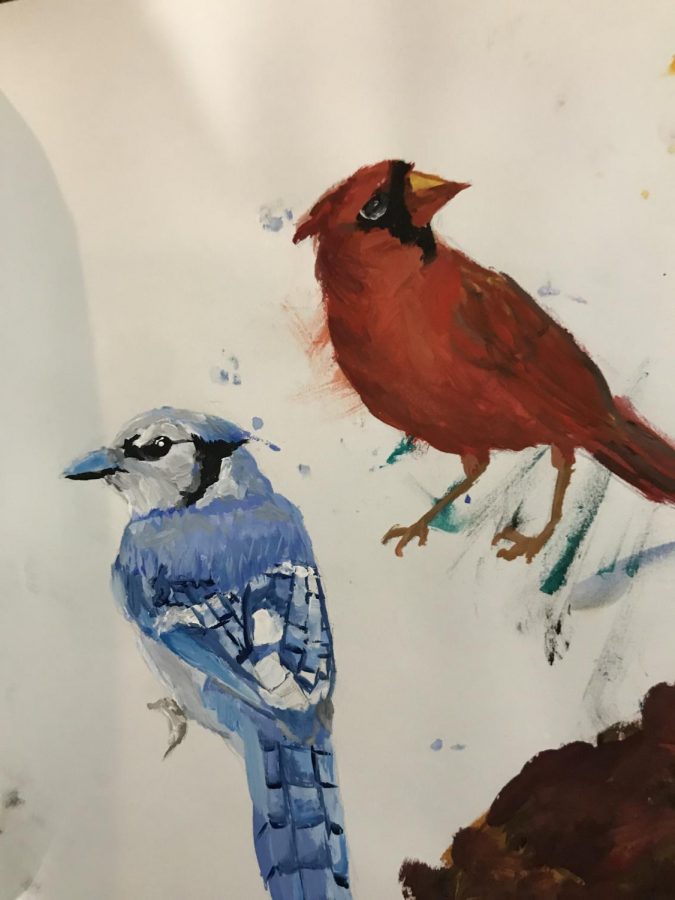Back in August, I took a week-long online painting class through Columbia University. I would spend five hours a day putting colors to canvas, studying art history, and playing with metaphors. In the end, I created four official portfolio pieces. The syllabus focused on imagery and color theory, and when I wasn’t working on the assigned pieces, I’d absentmindedly use the spare paint to experiment with these elements in my own preferred niche: acrylic portraits. These extra pieces may not have been aesthetically pleasing, or anything special at all, but they were living relics of my curiosity, testing the limits of these techniques.
Six months later, in the second semester of the school year, my paints collect dust in the basement where I used to lay them on canvas. My mental energy is used up in my daily classes, then squeezed dry with everything else outside of school. I’ve been too tired to paint, or write, or do any of the creative things that used to light up my brain. Most days, I simply can’t incorporate it in. On the rare occasion I do have time, the spark of curiosity is nowhere to be found. Art, after all, is scarcely easy. It’s constantly extending the boundaries, pushing your own abilities and mental capacity, and seeing what comes of it.
The other factor, of course, is the concept of “productivity.” Doing schoolwork is considered productive because it’s accomplishing a task that can get you good grades, and good grades can get you into a good college, if you’re lucky. Even when the schoolwork doesn’t hold much value or interest to the student, getting it done is still productive because, without it, you could do poorly in a class. Art, by most of society’s definitions, is not a productive use of time. Pursuing it professionally is discouraged, but at least then you may be working towards something. But what if you like to create for the feeling of doing so, as a form of relaxation and release? What if you have no real goal in your art except to push yourself and see where it leads? With no clear path, no stagnant direction, art can be freeing. Sometimes, someone really just wants to enjoy the feeling. With that mindset, though, how could someone convince themself that it’s productive? After all, the artist may have no intention of it leading anywhere. It holds immeasurable value, but it doesn’t exist in a void, and it sometimes feels impossible to rationalize spending time on art and not everything else that one could be doing.
Many students, like myself, have been wrestling with this internal conflict. What will it take to manage it, to get past the hurdle of being burnt out? Is it something an individual can accomplish on their own, by changing their routine and reminding themselves that even if something isn’t deemed productive, it can still be important? Or, is it part of something bigger, something that should be examined as a symptom of a system in which work is the priority, something that can only be treated by curing the root disease? Personally, I envy students who have found ways to hold onto their artistic spark. Lily Greenberg ’23, a student with an artistic focus in film, deals with this by following the advice of a teacher: “taking something simple and just building off of that.” For some people, this is perfect advice, but for others, it can be hard to find motivation in something so small. In the future, I hope to discover a method of my own to overcome the burnout.






